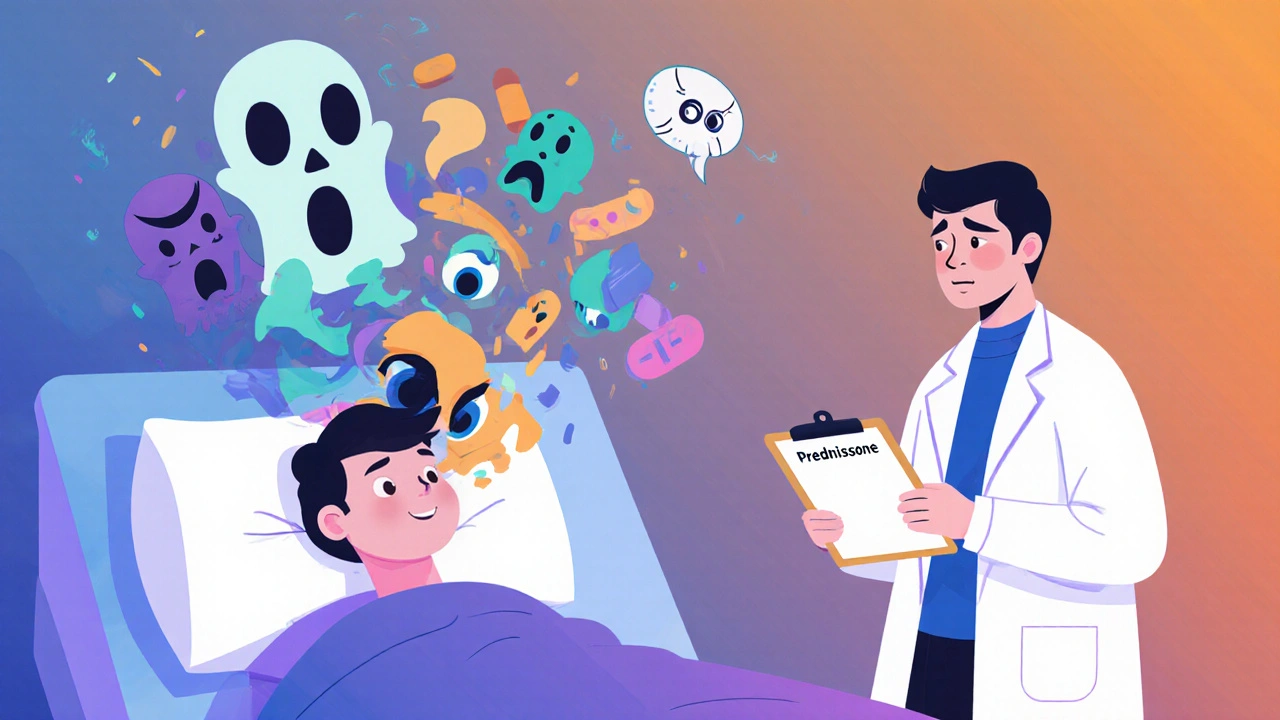Steroid-induced psychosis is a dangerous but treatable side effect of high-dose corticosteroids. Learn how to recognize early signs, respond in an emergency, and manage it safely with tapering and low-dose antipsychotics.
Antipsychotics for Steroid Psychosis: What Works and Why
When high doses of corticosteroids trigger steroid psychosis, a psychiatric condition caused by steroid use that includes hallucinations, delusions, and severe mood swings. Also known as corticosteroid-induced psychosis, it affects up to 5% of people on long-term or high-dose steroid therapy, especially those with pre-existing mental health risks. This isn’t just anxiety or stress—it’s a real, measurable brain reaction to the drug. People might hear voices, believe false things, or become dangerously agitated. It usually shows up within days or weeks of starting steroids, and it can be mistaken for schizophrenia or bipolar disorder if you don’t know the link.
The fix? antipsychotics, medications designed to reduce psychotic symptoms by balancing brain chemicals like dopamine. Also known as neuroleptics, these drugs don’t treat the steroid itself—they treat the brain’s reaction to it. Olanzapine and risperidone are the most commonly used because they work fast, have lower risk of movement side effects, and don’t interfere much with steroid metabolism. Haloperidol is still used in hospitals for acute cases, but it can cause stiffness or tremors. Quetiapine is another option, especially if sleep issues are part of the picture. The goal isn’t to stop the steroid (often it’s medically necessary), but to calm the brain enough so the patient can tolerate treatment.
What’s missing from most discussions is how often this gets missed. Doctors focus on the reason for the steroids—like lupus, asthma, or transplant rejection—and overlook the mental side effects. Patients might be labeled as "non-compliant" or "hysterical" when they’re actually experiencing a drug-induced psychosis. That’s why recognizing the timeline matters: if psychosis starts after a steroid dose increase, it’s likely steroid-related. Reducing the steroid dose helps, but it can take days. Antipsychotics give relief in hours.
You’ll find posts here that cover similar ground—like how Abilify (aripiprazole) is used for psychosis, or how Paxil can help with anxiety tied to chronic illness. But steroid psychosis isn’t about depression or ADHD—it’s a direct chemical effect. That’s why antipsychotics, not antidepressants, are the first-line response. Some of the posts below compare different antipsychotics, show how dosing changes for older patients, or explain why certain drugs are safer than others when steroids are still in the system. This isn’t theoretical. People are managing this right now—on dialysis, after organ transplants, or fighting autoimmune flares—and they need clear, practical answers.

